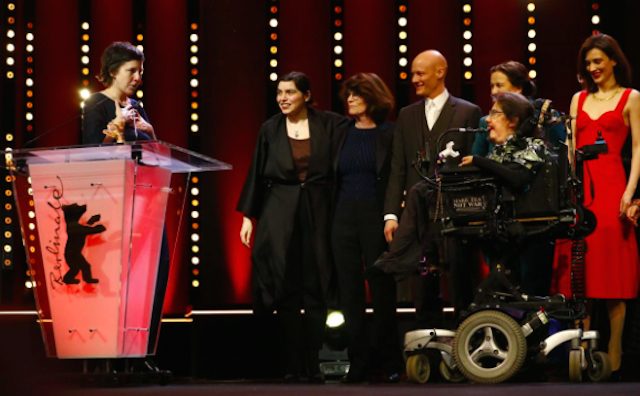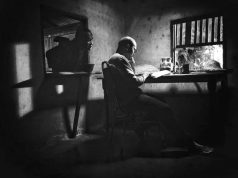
BERLIN | “Touch Me Not”, a film about intimacy and sex that shocked some viewers with explicit scenes, won the Golden Bear prize for best film at the 68th Berlin International Film Festival on Saturday.
Romanian director Adina Pintilie said she had not expected to win the award for her ‘sexperimental’ film, which blurs reality and fiction as it follows characters who seek intimacy yet also fear it.
Speaking at a news conference after collecting her Golden Bear trophy, Pintilie said the film invited viewers to feel empathy, embrace otherness and reconsider their ideas about everything. It holds a mirror up to the audience, she said.
“This is why I think for many people this film might not be comfortable but at the same time we challenge you, the viewer, to dialogue and to look at yourself,” Pintilie said.
The Silver Bear award for best director was given to U.S. director Wes Anderson for “Isle of Dogs” — an animated movie about a Japanese city that deports its dogs to a garbage dump island during an outbreak of canine flu.
Bill Murray, who was the voice of one of the dogs, collected the award at the gala ceremony on Anderson’s behalf.
“I never thought that I would go to work as a dog and come home with a bear,” he joked as he held the Silver Bear trophy.
Anthony Bajon received the award for best actor for his role as a drug addict who tries to kick his habit with the help of religion in Cedric Kahn’s “La priere” (The Prayer).
“I prayed a lot to receive a bear,” Bajon told a news conference after the awards ceremony, adding: “It’s very important to show drug addicts that there is a way out of their addiction – in this movie it is the monastery, it is religion that helps this person.”
And Ana Brun received the best actress award for her role as a reclusive woman who ends up taxiing older ladies around when her partner gets sent to prison in Marcelo Martinessi’s “Las herederas” (The Heiresses). That film also won the Silver Bear Alfred Bauer prize for a feature that opens new perspectives.
The best screenplay award was given to Manuel Alcala and Alonso Ruizpalacios for “Museo” (Museum), about students stealing artefacts from Mexico City’s National Museum of Anthropology in a 1985 heist that shocked the nation.
Polish director Malgorzata Szumowska’s “Twarz” (Mug) – about a man who has a face transplant after an accident – took the Silver Bear grand jury prize.
Elena Okopnaya won an award for outstanding artistic contribution for costume and production design in Russian director Alexey German Jr.’s biopic “Dovlatov” about the 20th century writer Sergei Dovlatov.
The awards were decided by a six-person jury headed by German director Tom Tykwer. At the festival, which runs from Feb. 15 to Feb. 25, around 400 films are being screened. Of those, 19 were competing for the top Golden Bear prize.
The ‘Berlinale’ is one of the oldest and most prestigious film festivals in the world. While there was no overarching theme this year, there were many films about migration and portraits of artists.








